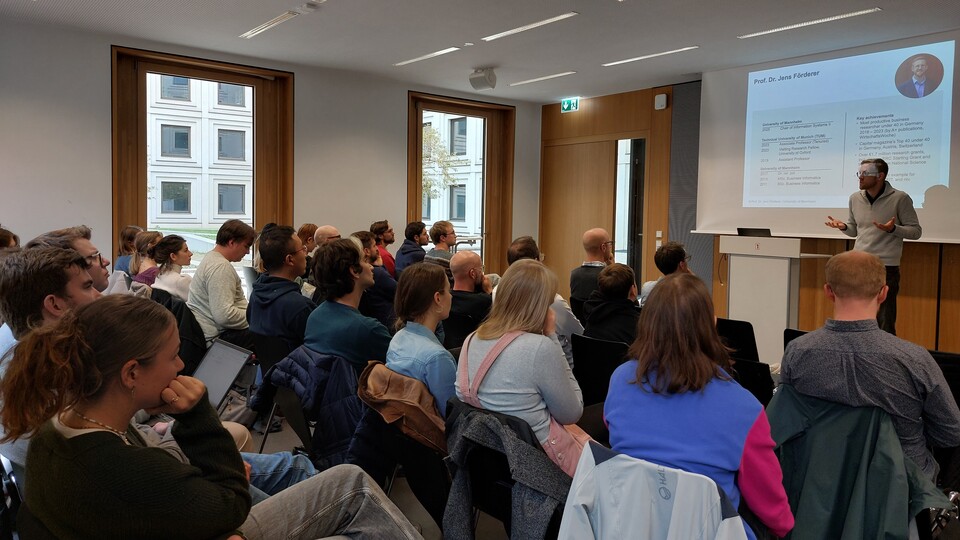Academic speed dating in the fall semester of 2025: Exploring boundaries – Data science for information systems and society

The afternoon kicked off with a keynote speech by Prof. Dr. Jens Förderer, Chair of Information Systems II at the University of Mannheim. In his presentation, “Quasi-Experiments in the Digital Economy: Best Practices & Applications,” he used concrete examples to explain the methodological challenges that arise and how robust findings can be obtained despite the often lack of experimental control.
This was followed by Prof. Dr. Sebastian Stier, Professor of Computational Social Science at the University of Mannheim and Scientific Director at GESIS – Leibniz Institute for the Social Sciences. Under the title “Unlocking Digital Behavioral Data: New User-Centered Approaches for Social Science Research,” he presented new methods for making digital behavioral data usable for social science questions.
The two keynotes were followed by a series of three short presentations in which researchers from different disciplines presented their ongoing projects. In his presentation “Survey Answer Production: How to Produce Closed-Ended Survey Answers with Large Language Models,” Georg Ahnert (Chair of Data Science in the Economic and Social Sciences) showed how large language models can be used to generate realistic answers to closed-ended survey questions—an approach that can significantly accelerate the development and validation of new survey instruments. Lena Rudant (Chair of Organization and Innovation) presented research findings on “Gender differences in initial wage-setting under conditions of full transparency, leveraging quasi-experimental variation and digital behavioral data.” Her presentation highlighted how gender differences manifest themselves in wage-setting under conditions of complete transparency and what role digital behavioral data can play in analyzing such processes. Samuel Maeurer (German Business Panel) concluded the short presentations with his contribution “Beliefs about Bots: How Employers Plan for AI in White-Collar Work.” He showed how companies are responding to the increasing use of artificial intelligence in knowledge-intensive activities and what ideas managers have about the future role of AI in the workplace.
As always, Academic Speed Dating offered ample opportunity for networking this semester. During the coffee break and the subsequent get-together, participants discussed possible collaborations, new research questions, and methodological approaches. The open format promoted interdisciplinary exchange between data science, economics, and social research, once again contributing to the strengthening of the academic community at the University of Mannheim.
The Mannheim Center for Data Science would like to thank all speakers and guests for their enthusiastic participation and is already looking forward to the next edition of this successful format next year.
